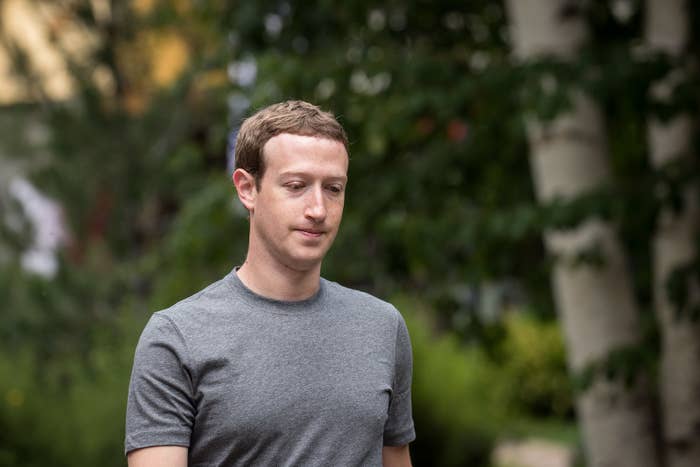
Donald Trump took to Twitter. Mark Zuckerberg responded on Facebook.
On Wednesday, the Facebook CEO responded to the president's comments that his company "was always anti-Trump" with a bulleted statement that attempted to downplay the notion that the social network influenced the 2016 election for either party.
"The facts suggest the greatest role Facebook played in the 2016 election was different from what most are saying," Zuckerberg wrote on Facebook.
It's been a contentious month for Facebook after the company acknowledged efforts by foreign entities to manipulate the race on its platform by buying targeted ads. Last week, the company said it would have copies of more than 3,000 ads with ties to Russian actors to give to the House and Senate Intelligence Committees, with Zuckerberg announcing a new policy with for advertising so-called dark posts. On Wednesday, the company, along with Google and Twitter, were invited to testify in front of the Senate Intelligence Committee on Nov. 1.
A source close to Facebook confirmed that the company had received the invite, but that it had not decided who to send in front of the committee.
"Trump says Facebook is against him," wrote Zuckerberg. "Liberals say we helped Trump. Both sides are upset about ideas and content they don't like. That's what running a platform for all ideas looks like.
Earlier on Wednesday, Trump wrote in the first of a two-part tweet that Facebook had been opposed to his candidacy: "Facebook was always anti-Trump," he said. "The Networks were always anti-Trump hence,Fake News, @nytimes(apologized) & @WaPo were anti-Trump. Collusion?"
Facebook was always anti-Trump.The Networks were always anti-Trump hence,Fake News, @nytimes(apologized) & @WaPo were anti-Trump. Collusion?
In his post, Zuckerberg attempted to outline the positives that his company brought to the election. He noted that "more people had a voice in this election than ever before" because of Facebook and notes that all the candidates had Facebook pages through which they interacted with tens of millions of followers. The post, however, made no mention of the fake news and information that the platform helped to proliferate.
"After the election, I made a comment that I thought the idea misinformation on Facebook changed the outcome of the election was a crazy idea," Zuckerberg wrote. "Calling that crazy was dismissive and I regret it. This is too important an issue to be dismissive."
The Facebook CEO also hinted that he may be in favor of campaign spending reforms for online advertising. "Campaigns spent hundreds of millions advertising online to get their messages out even further. That's 1000x more than any problematic ads we've found," he said.
Since the election, Zuckerberg has stayed out of Trump's orbit. In December, during a meeting of technology leaders at Manhattan's Trump Tower, Facebook opted to send Chief Operating Officer Sheryl Sandberg to sit down with the then-president-elect. He also did not attend a similar meeting for technology leaders in June at the White House, with the company reportedly citing "scheduling conflicts" at the time.
Zuckerberg has also largely avoided saying Trump's name in public settings. He discussed "fearful voices calling for building walls" at a keynote for the company's F8 conference in April 2016 and made a veiled criticism at the presidential administration's approach to immigration at Harvard University's May commencement, but did not mention the president's name at either event. Similarly in a Facebook post criticizing the president's decision to end the Deferred Action for Childhood Arrivals (DACA) policy, he did not name Trump.
It remains to be seen if Zuckerberg or another representative for Facebook will testify in front of the Senate Intelligence Committee in November.
